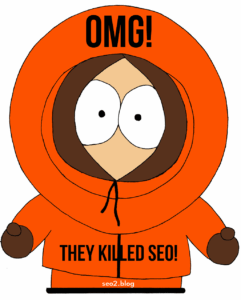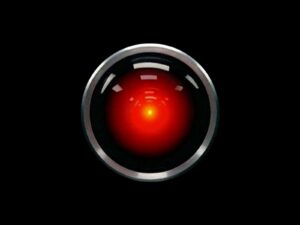 *
*
I promised you a redefinition of SEO when I started this blog. In fact it’s still in the name of it. Where is it you might ask.
Until now I delivered only an upgrade, a new version of SEO. Yes, SEO 2.0 until now does not entirely redefine SEO.
The fuzzy definition nobody told you about
I gave you only some hints what SEO 2.0 is all about. Thus many people more or less assume that SEO 2.0 is more a new set techniques.
Some assume it is the place where the optimization takes place that has changed. Most of you assume that
- Social Media Optimization
- Reputation Management
- Universal Search Optimization
are key aspects of SEO in a social Web environment. This environment is not new anymore, it’s taken for granted.
Looking at it this way, SEO 2.0 is a bit late. It appeared years after the introduction of Web 2.0!
While all the assumptions above are not wrong, they are just part of the story. In fact SEO 2.0 as I perceive it – because I did not invent or introduce it – is more than that.
Adapting to the evolution of the Web
It’s just that I watch how the Web evolves and try to come to terms with it. What else does is mean then?
While SEO as an acronym still stands for Search Engine Optimization let us take a look at the current stage or definition of search on the Web.
Search in the sense of search engines – robot driven data bases of information – works in a way many people can’t cope with.
You basically have to know already what you are looking for in order to find it. It works like a dictionary. You need a term you want to look up, without knowing the correct term you are lost.
What happens with people who don’t know how to express their needs yet? How do you know you need SEO for instance when you are not familiar with the term?
You will probably attempt to circumscribe what your are seeking. Something like „How to appear on top of Google?“ would be a logical question to pose in a case like this.
Google wants to respond
Now what happened at Google for years was that it couldn’t answer questions. It just echoed your question.
In case you were lucky it would find an instance of the same or similar questions others published on the Web.
What do you do when you don’t even imagine that something like SEO can exist? Most people do not even know that you can influence search results, especially without manipulating them.
People still tend to stare at me when I try to explain it to them or assume that I am a spammer.
Now let’s consider Pinterest. You probably do not think that Pinterest is a search engine do you? Well, let’s look at what Pinterest actually does.
It suggests you images that might be of interest to you based on your preferences and what your peers like.
They call this a discovery tool, some people might reflect on it as some kind of Internet TV (channel surfing) while the official term is rather social discovery.
Algorithm based curation on Pinterest and Google
Now let’s take a second look: Pinterest has an algorithm. It’s attempts to sort and rate the relevance of content. It organizes content according to people’s choices.
The only difference to Google is the kind of input the engine gets. At Google the input comes from spiders crawling the Web.
These finds get ranked based on a plethora of human induced factors like links. On Pinterest you have humans collecting and sharing content based on personal preferences.
Of course Pinterest also ranks your submission based on how many people pin it and engage in other ways. The more people do the more other users will see it.
Moreover the more people follow you actively the more substantial your impact. The more active you are on Pinterest the more influence you have.
Similarly with Google where the search engine assumes that the older your website is and the more links it has among others the better it must be.
You don’t have to know what you want exactly
The main difference is that you do not have to know at Pinterest what you are seeking. A vague idea is enough to open up a whole sesame of precious jewels of the web.
When you enter the category „Internet“ you might find a site about SEO even if you didn’t know it existed.
A site like Pinterest might not be called a search engine but still technically explained it is one.
Of course this is no revolutionary insight I present here. So this is still not the redefinition of SEO I want to present to you.
This is just an introduction. This is a post that will lead you towards the right direction: Towards a new definition of SEO.
Helping people is mot most important
What is most important is that you keep in mind that SEO is about helping people to find the stuff they seek online while assisting others to be found.
It does not make sense to come up with new acronyms that confuse people each time a new trend in SEO arises.
We can make use of this term and make it reflect the changes that happen around us on the current Web. Stay with me and accompany me on the way to a new SEO.
Last updated: April 25th, 2018. Updated August 1st, 2015: Consider the SEO vs SEO 2.0 comparison and the SEO has evolved article as well.
* Creative Commons image by Camdiluv








